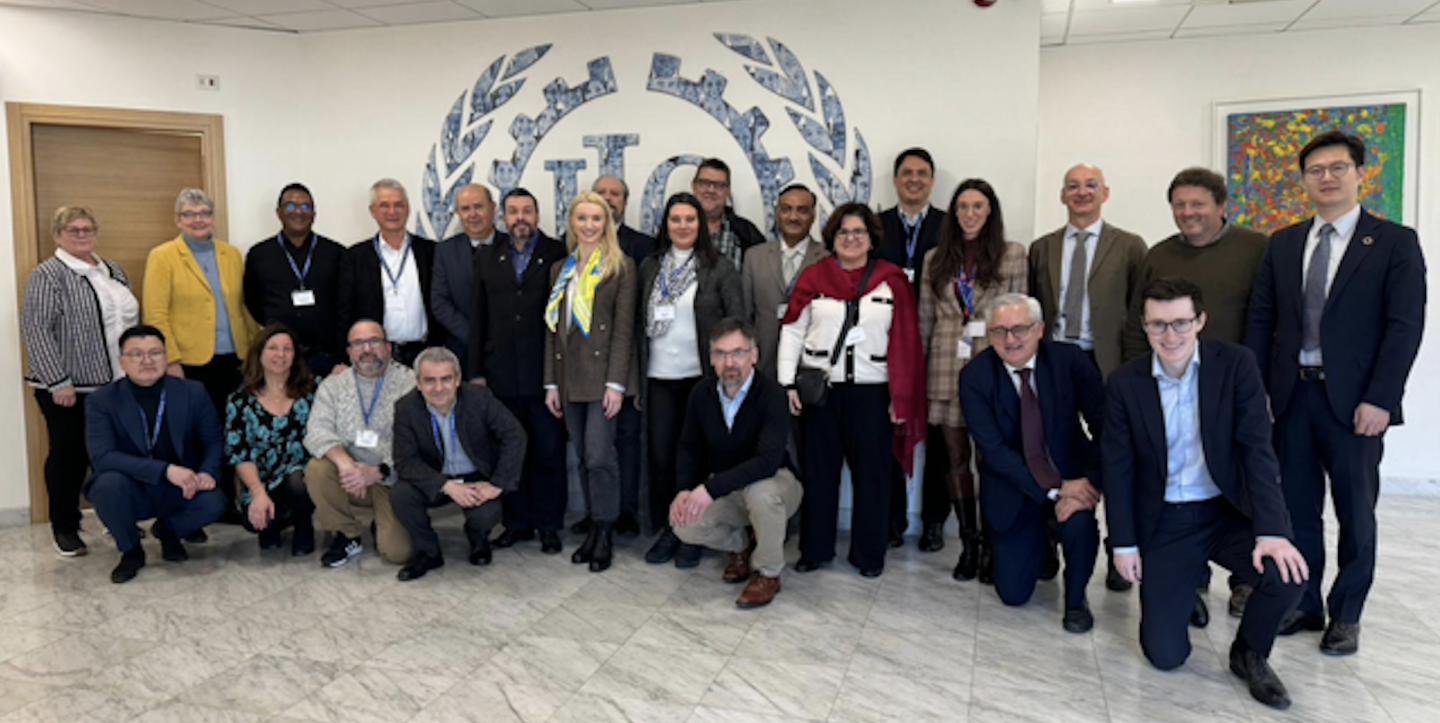Read this article in:
English
4 February, 2025What is the vision for safer workplaces in the leather and tannery industry? Best practices from around the world were discussed at a workshop in Turin on 27 and 28 January.
As part of an EU-funded project, coordinated by the ILO, unions from around the world with members in the leather and tanning sector met for a workshop focusing on occupational safety and health (OSH) and the importance of social dialogue.
Participants shared experiences and identified good practices adopted by the sector. The discussion made clear that through strong social dialogue and strong collective bargaining agreements, OSH standards and accident prevention have been greatly improved. Participants brainstormed ways to promote the scale-up of these practices and discussed visions for safer tannery workplaces.
Christina Hajagos-Clausen, IndustriALL Global Union textile and garment director said:
“Social dialogue in the leather and tanning industry is key to ensure safe working conditions for workers in the sector. In countries with strong social dialogue and sectoral bargaining, it is clear that OSH standards are in compliance with the ILO conventions. It is essential to continue to develop global social dialogue with our social partners.”
The OSH risks from climate change and the green transition are receiving increasing attention. Working in extreme heat is also a problem for indoor workers in poorly insulated and ventilated workplaces. It can lead to acute and long-term health consequences, such as heatstroke, cramps, rashes, kidney and liver damage, chronic heat exhaustion or poor sleep, if not managed and reduced.
The green transition requires companies to switch to new technologies and materials. Thorough risk assessments are needed to determine potential exposure to hazardous chemicals or biological hazards, the risks of explosion, and the safe handling of new machinery.
The gender perspective was also underlined, and raising awareness of menopause as a workplace topic was discussed. This long-term, fluctuating health change, typically between the ages of 45 and 55, can involve dips in job performance. Symptoms must not be made worse by the workplace or workplace practices; it is important to adjust working conditions, e.g. to adapt work clothes, install fans, or adjust working hours, and to prevent any discrimination on these health grounds.
Judith Kirton-Darling, industriAll Europe general secretary, underscored the importance of worker safety and social dialogue:
"Every worker should be safe in their workplace, and social dialogue is an important tool to deal with health and safety issues. IndustriAll Europe continues to work on health and safety issues at European level with its social partner COTANCE and EU policymakers. The workshop in Turin with our sister organisation IndustriALL Global Union and international social partners was a step in the right direction.
“We stand in solidarity with workers across the world and call on all stakeholders to work together to ensure decent jobs in the supply chain, including tanning and leather. Workers’ safety should be everyone’s number one concern."
